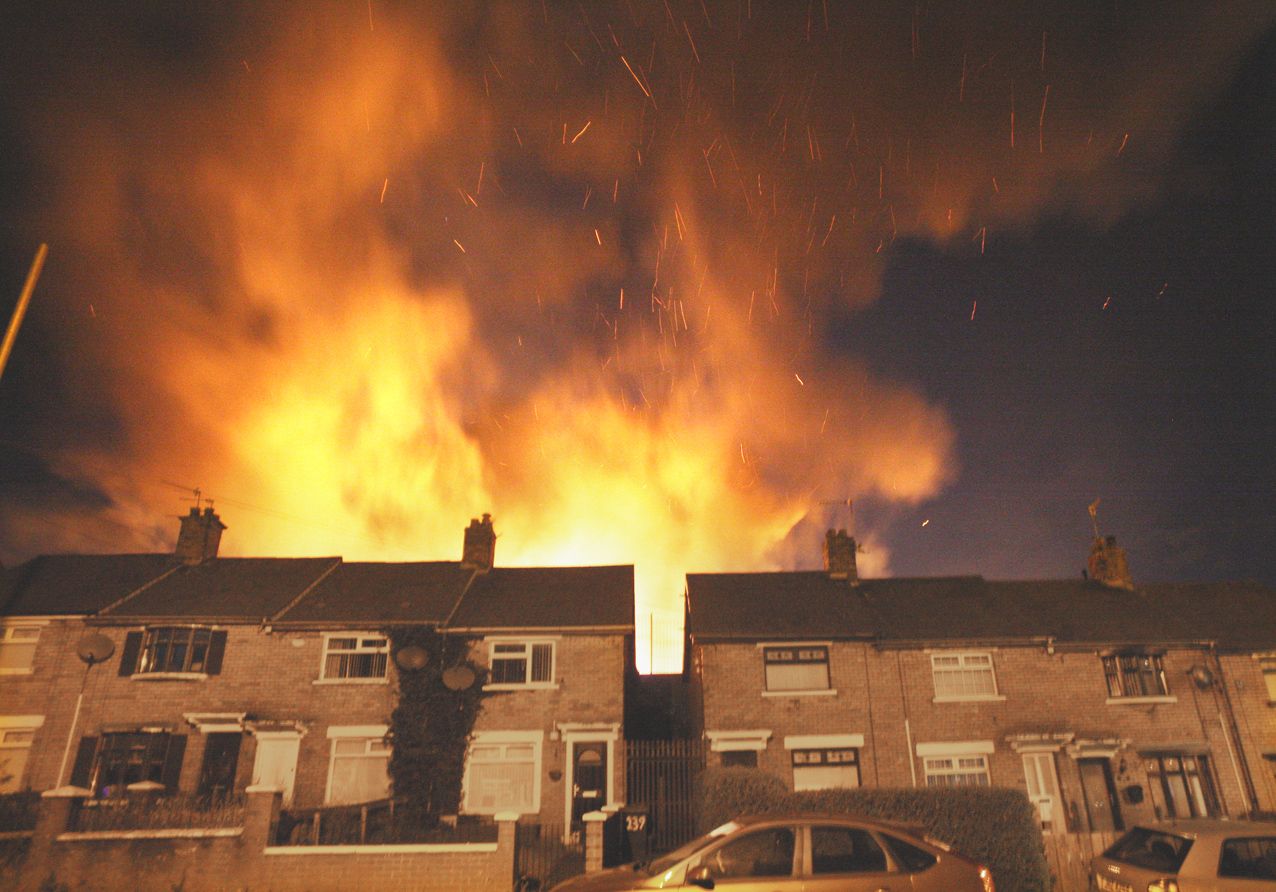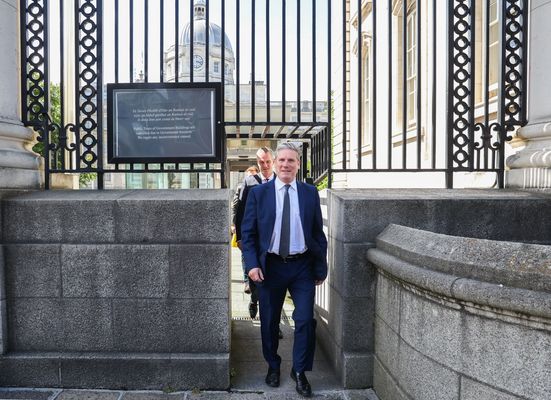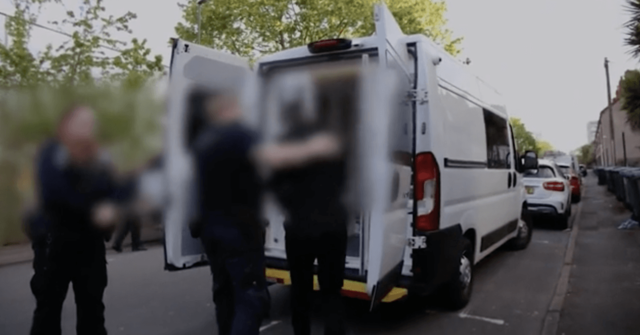Just for a moment, hold back the frustration and forget about what DUP leaders say – and don’t do. Suspend judgement about the “meaningful engagement”, albeit “tentative”, they claim to be having with the British government, now accused of “megaphone diplomacy”. And forget about trying to come to a rounded assessment of the current state of DUP internal party politics.
Look instead at their faces and their body language, and listen to the sound of their voices. From red faces to nineteenth century finger wagging. From strained, pained and pale faces to shouts and hectoring. The emotions being communicated here are anger and anxiety. At times there is the hurt of the victim being expressed, whether from the conflict of the past or from the outworkings of Brexit.
Some arrangement must be reached that allows non-DUP voters (a majority) to have a say in the running of their country; there is an democratic deficit:
— David Parris (@DavidPa03067190) August 17, 2023
Jeffrey Donaldson slams Varadkar's 'unhelpful' comments on alternative to returning to Stormont https://t.co/c6nTLsCGM0
It is becoming harder for the leaders of unionism to radiate confidence and reassurance that all will be well, that the union can be relied on to deliver “the feast that we get from Westminster” (to quote Sammy Wilson), or to hide the vulnerability that comes with losing political control of an entity created for their permanent domination.
"existential threats can stimulate despair, leading to the withdrawal from democratic politics (low turnouts at elections), self-destructive personal behaviours, permanent flight (emigration) and the growth of “messianism”, the belief that a populist religious or political messiah will save the day."
Smugness increasingly comes across as ridiculous and the sort of nostalgia found in pages of photos of the glorious past in the News Letter, provides a thin comfort blanket.
Raised on a diet of supremacy, the DUP are blocking the restoration of power sharing because the future does not belong to them
— Chris Hazzard MP (@ChrisHazzardSF) August 27, 2023
The days of veto & obfuscation are gone, social & political change continues apace
If the DUP keep Stormont down the people will opt for something new https://t.co/goxRuJ040j
Maybe what we are seeing here are types of grief reaction to the loss of the unionist control at Stormont, in particular denial and anger. While parts of the electorate seem to accept the change, the hardcore TUV and DUP voters support parties exhibiting all the signs of chronic dysfunction – what some therapists might call “prolonged grief disorder”.
In the absence of constructive political leadership, existential threats can stimulate despair, leading to the withdrawal from democratic politics (low turnouts at elections), self-destructive personal behaviours, permanent flight (emigration) and the growth of “messianism”, the belief that a populist religious or political messiah will save the day.
BACKWARD-LOOKING: Building a bonfire in Newtownabbey
Such political energy that remains is all too easily channelled into polarising culture wars and divisive arguments as a form of entertainment. The worst of this is the boost given to negative emotions towards those outside the circle of wagons and even those within. Backward looking hatred is the default emotional setting. Nor should anyone be flattered that Trump’s new slogan is “never surrender”.
How is any of this serving the futures of young people in the most socially and economically deprived loyalist areas? How is it addressing any of the health and social care concerns of older people, the majority of whom are from Protestant backgrounds? How is it providing a stable framework for small and large companies? How will it keep the lights on? How is it protecting the vital work of the community and voluntary sectors? How does it advance the case for the status quo as the referendum on Irish unity draws closer?
‘Business organisations should stop being so cowardly about the Windsor Framework and complain about it.’
— Kevin Meagher (@KevinPMeagher) August 11, 2023
Another headline might be:
‘NI businesses thinks the Windsor Framework is a good deal and they’re making the most of it.’ https://t.co/kcN0XQ06OV
One of the themes of Féile’s Summer School was reunification. What will be the role of citizens’ assemblies and what’s involved in winning a referendum? How will Irish media change and how will the BBC react to the end of partition? What are the hopes and fears of young people?
It was clear from these and other discussions – notably on housing, health, biodiversity and the economy – that there is a strong aspiration to construct a new Ireland that means more than incorporating the north into the republic as it is now. For sure, Articles 2 and 3 of the constitution (which define the nation) will change again, but what about other changes to the constitution?
It is possible that by the time we get round to the referendum on unity the constitution will have already changed. Two strong contenders are housing and the environment. In April of this year, the final report of the Citizens’ Assembly on Biodiversity Loss recommended changing the constitution in order to recognise the rights of nature, as well as to ensure people have a right to a clean, healthy, and safe environment. Hopefully, the crime of ‘ecocide’ will soon be incorporated in international and domestic law as well.
The case for amending the constitution to include the right to housing is also well advanced. As Féile was about to get underway, the Irish Times reported a “major split” in the Dublin government’s Housing Commission over a referendum on the right to housing. Alarmingly, members of the Commission had received death threats from “external opponents to the referendum, suspected to be far-right activists”.
It has taken nearly ten years to get to this point after 85 per cent of the members of the 2014 Constitutional Convention voted in favour of amending the constitution to strengthen the protection of economic, social and cultural rights. Recognition of disability rights attracted the highest vote (90 per cent), followed by “essential health care” (87 per cent) and the right to housing (84 per cent).
Human rights organisation Amnesty International has made fresh calls for a referendum on the right to housing in Irelandhttps://t.co/OUA1qIqM0T
— RTÉ News (@rtenews) March 28, 2023
There is nothing exceptional about this discussion internationally. Many countries with written constitutions explicitly recognise the right to public health and the right to health care, so in many ways the Constitutional Convention could be seen as a catching up process – except that not much catching up has happened since it reported. What the latest debate on housing reveals is just how entrenched the opposition to social rights remains.
FÉILE FROLICS: Annual West Belfast community celebration gives hope for future
Constitutional reform is by no means plain sailing, even when backed by recommendations from citizens’ assemblies. The CA on gender equality recommended as far back as June 2021 that Article 41 of the constitution had to change. This begins: “the State recognises the Family as the natural primary and fundamental unit group of Society”, and goes on to prescribe the role of women who “shall not be obliged by economic necessity to engage in labour to the neglect of their duties in the home”. A referendum to change this is due in November but postponement is likely as no gender-neutral wording is agreed as yet.
In a replay of arguments heard by the 2014 Convention, former Progressive Democrat justice minister Michael McDowell recently wrote that a right to housing would lead to a proliferation of court cases and “would only enrich the legal profession and politicise the unelected judiciary” – it wouldn’t lay a single brick (Irish Times 2/08/2023). Eoin Ó Broin (Sinn Féin’s spokesperson on housing in the Dáil) countered by pointing out that human rights experts say justiciable economic and social rights can restore faith and trust in political institutions, and would in fact limit “judicial activism”. The right to housing “would act as an impetus for change, creating an expectation that could be a driver for policy action” (Irish Times 10/08/2023). Ó Broin’s presentation at Féile, which discusses this point, can be seen below:
There is clearly widespread support for incorporating environmental, health and housing rights in the constitution. This would accomplish at least two things. First, it would provide a legal baseline for holding the powerful to account, with the potential of compensating for past violations and deterring future violations. Secondly, it would provide government ministers with a foundation of moral authority to make long-term changes on the policy front, avoiding the pitfalls of short-term political responses.
Addressing the republic’s housing crisis is the top political priority because, not only is it the major driver of high living costs, but it is also undermining public services and the economy. Time to replace the hopelessness of inaction and failure with the optimism and vision of fundamental change.







